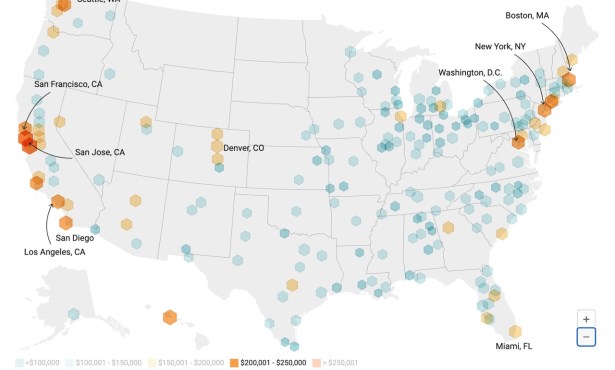Immigration Raid Challenged
Government Agents Arrest UCSB Student
Although federal Homeland Security agents came into the apartment searching for her Iranian roommate, a UCSB student was taken into custody on Wednesday, May 23 for alleged violations of immigration law-a murky situation further muddled this week by claims of improper procedure.
Officers from the Compliance Enforcement Unit, an investigative branch of U.S. Immigration and Customs Enforcement (ICE), entered the unit at the UCSB-owned Santa Ynez Apartments at 5 a.m. to interrogate a graduate student from Iran about her visa status. After finding the graduate student’s papers were in order, the agents turned to her roommate, Yoon Choi, a third-year sociology and philosophy student from South Korea. Virginia Kice, spokeswoman for ICE, the largest branch in the U.S. Department of Homeland Security, said Choi lacked proper identification, and that officers eventually discovered that she had been in the U.S. for six years with an expired visa.
“Our investigation is ongoing,” Kice explained. “We are going to follow up to determine if any wider-scale violations occurred.” Kice said Choi entered the U.S. in February 2001 with a visitor’s visa; she was allowed in the country for a few months’ pleasure stay. When the time came to leave, however, Choi remained in the country without applying for another visa, and she does not currently have a student visa allowing her to attend school legally, Kice said. ICE has begun deportation proceedings in order to return Choi to South Korea, but she must first go through an administrative hearing. Choi’s family has retained the services of Beverly Hills-based attorney Leon Hazany, who declined to comment Tuesday afternoon.
While the officers arrested a person who may turn out to be an actual violator of the law, several UCSB officials and students questioned whether the agents should have even been at the apartment that morning. UCSB spokesman Paul Desruisseaux said he had been in communication with a staff member from UCSB’s Office of International Students and Scholars, who had lodged a protest with ICE over the action but who could not be reached for comment by The Independent; Desruisseaux was told by this staff member that ICE agents are supposed to contact the school to verify information before interrogating a student suspected of immigration violations. According to Desruisseaux and interviewed faculty members, ICE did not follow this policy.
Though she did not directly respond to the accusation, Kice said the agents were responsibly following up on a tip they received via SEVIS (Student and Exchange Visitor Information System)-the State Department’s computer tracking program for international students studying in the U.S. As the agents later found, the irregularities in the Iranian student’s files originated with UCSB. “The school had entered some erroneous information” into the SEVIS database, Kice said.
Regardless, fellow graduate students in the Global Studies Department were disgusted with the chosen route. “This particular scenario could have been solved in different ways, specifically because if they had done more research they would’ve known it wasn’t her fault,” graduate student Eddie Saade said, referring to UCSB’s alleged data entry blunder. He suggested that the agents could have gone through the university’s administrative channels instead of interviewing the woman at 5 a.m. “It’s a major sign of society totalitarianizing.”
Saade shared additional concerns that fellow graduate students have raised about the interrogation, including its implications for how the government may be acting toward other foreign students or visitors. In particular, he addressed the sweeping powers of such legislation as the PATRIOT Act, which he said could easily be abused. According to Desruisseaux, last week’s incident was the first of its kind that he or any other administrator had heard of.


